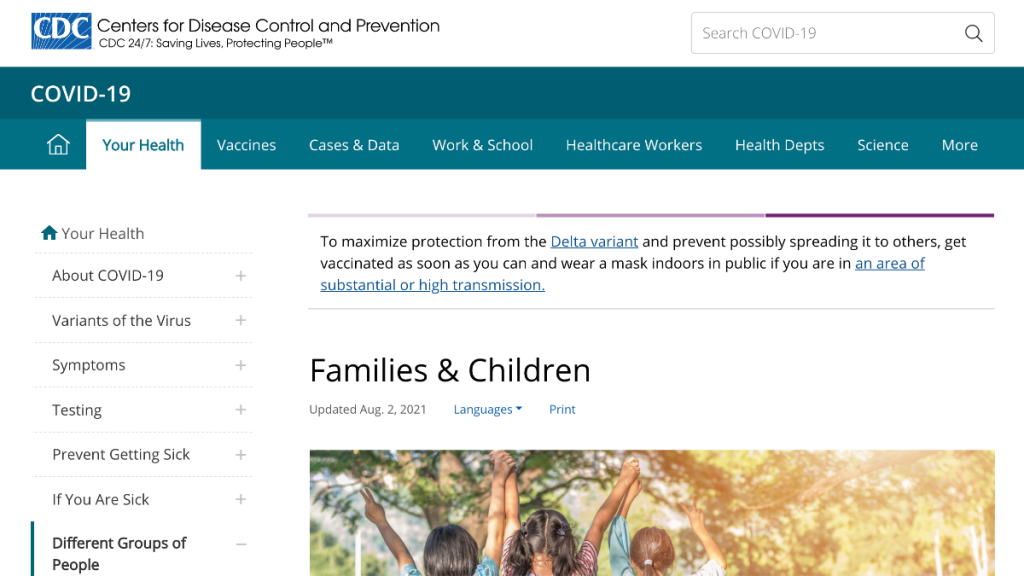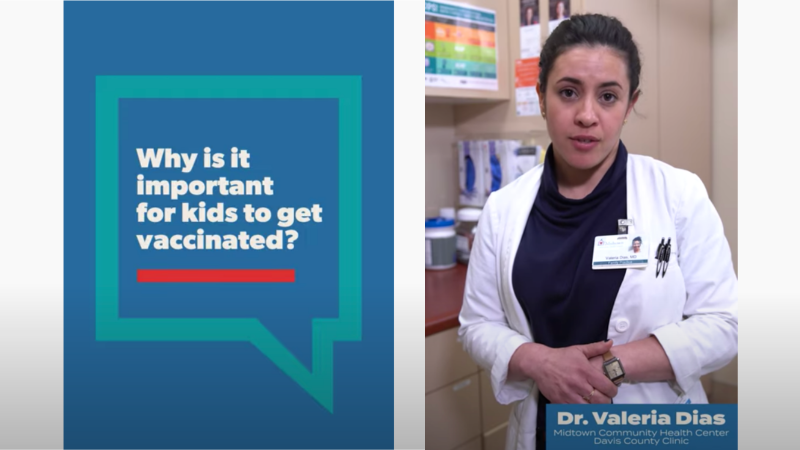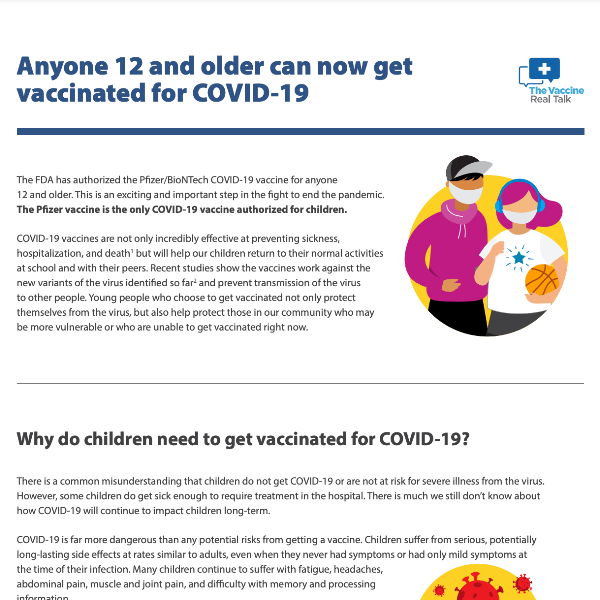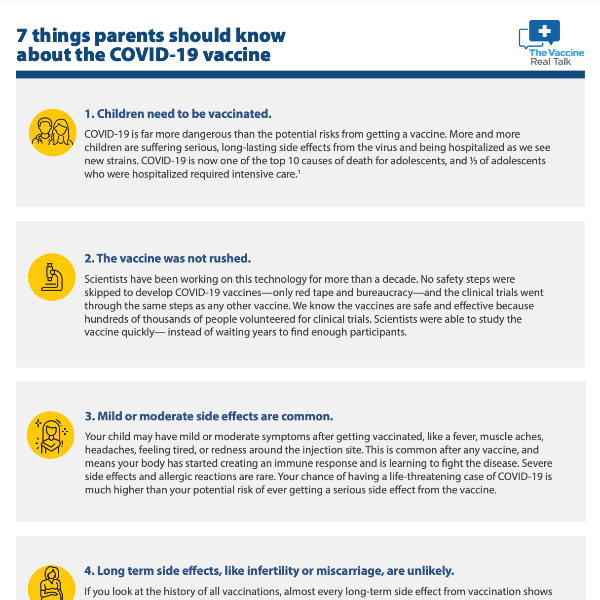Take Dr. Dias’ advice: the COVID-19 vaccine decreases the spread of the virus, to children and adults.
Click to watch our video playlist for parents.
Right now, children are getting COVID-19 at about 2-5 times higher rates than what we saw at the beginning of last school year.
Click for info about COVID in school-aged children.
The most important thing is keeping children safe
The COVID-19 vaccines are the best way to protect you and your family
The Pfizer vaccine is available for children ages 12-17
The FDA announced full approval of the Pfizer vaccine for people ages 16 and older on August 23. This is the final step in a rigorous approval process to confirm the vaccine’s safety and effectiveness. The vaccine is available for people ages 12-15 years through the FDA emergency use authorization.
Safety
Reputable medical organizations, including the FDA, CDC, and American Academy of Pediatrics, have stated the benefits of the COVID-19 vaccine greatly outweigh the risks of vaccination or getting COVID-19. This is true for adolescents and adults. The CDC published a report on vaccine safety in adolescents last month. They found that mild reactions are common among adolescents, and serious adverse events are rare.
Delta variant
The vaccines protect against the Delta variant. Even though the Delta variant is more contagious, vaccines prevent almost all cases of severe illness, hospitalization, and death from COVID-19.
Children younger than 12
According to the CDC, wearing a mask while indoors is the best way to protect children who are too young to get vaccinated.
In the meantime, vaccine makers are studying vaccines for children ages 5-11. It has been reported that Pfizer will apply to the FDA for authorization for children ages 5-11 by the end of September, once its study data has been submitted. The FDA and CDC have not commented on a timeline.
Find more guidance from CDC for families with children

K-12 school recommendations
The Utah Department of Health recommends a layered prevention approach consistent with the Utah COVID-19 Disease Plan and CDC school guidelines. This approach will minimize the impact of COVID-19 exposures and outbreaks in school settings while maximizing opportunities for children to participate in in-school learning and extracurricular activities.
COVID-19 can severely disrupt learning, school attendance, and involvement in extracurricular activities. Children can and do get COVID-19 and are at risk for severe illness from the virus. Even with mild illness, children can spread the virus to other people and suffer from long-term health effects like fatigue, headaches, abdominal pain, muscle and joint pain, and difficulty with memory and processing information. This is why using layered prevention strategies in schools is so important.
Parents and school staff who have questions about how COVID-19 will be handled in their school or at extracurricular activities should contact their local health department or school for more information.



